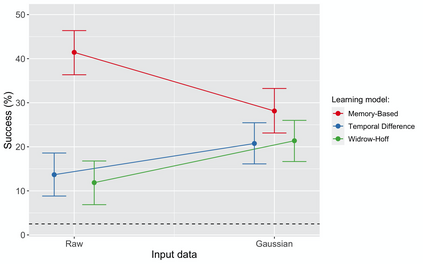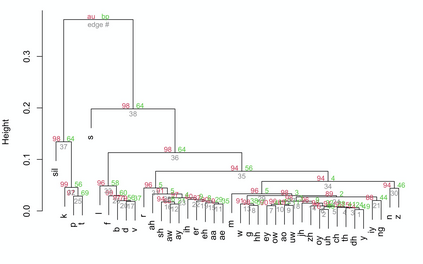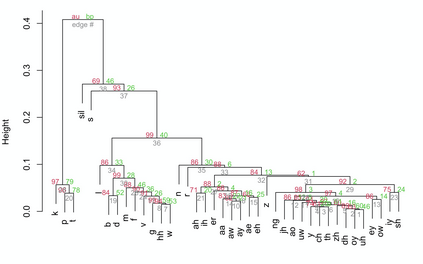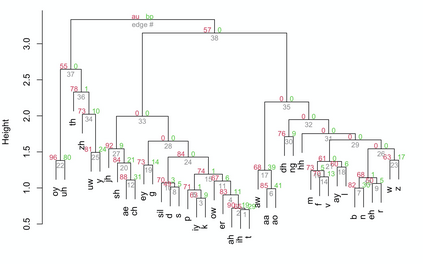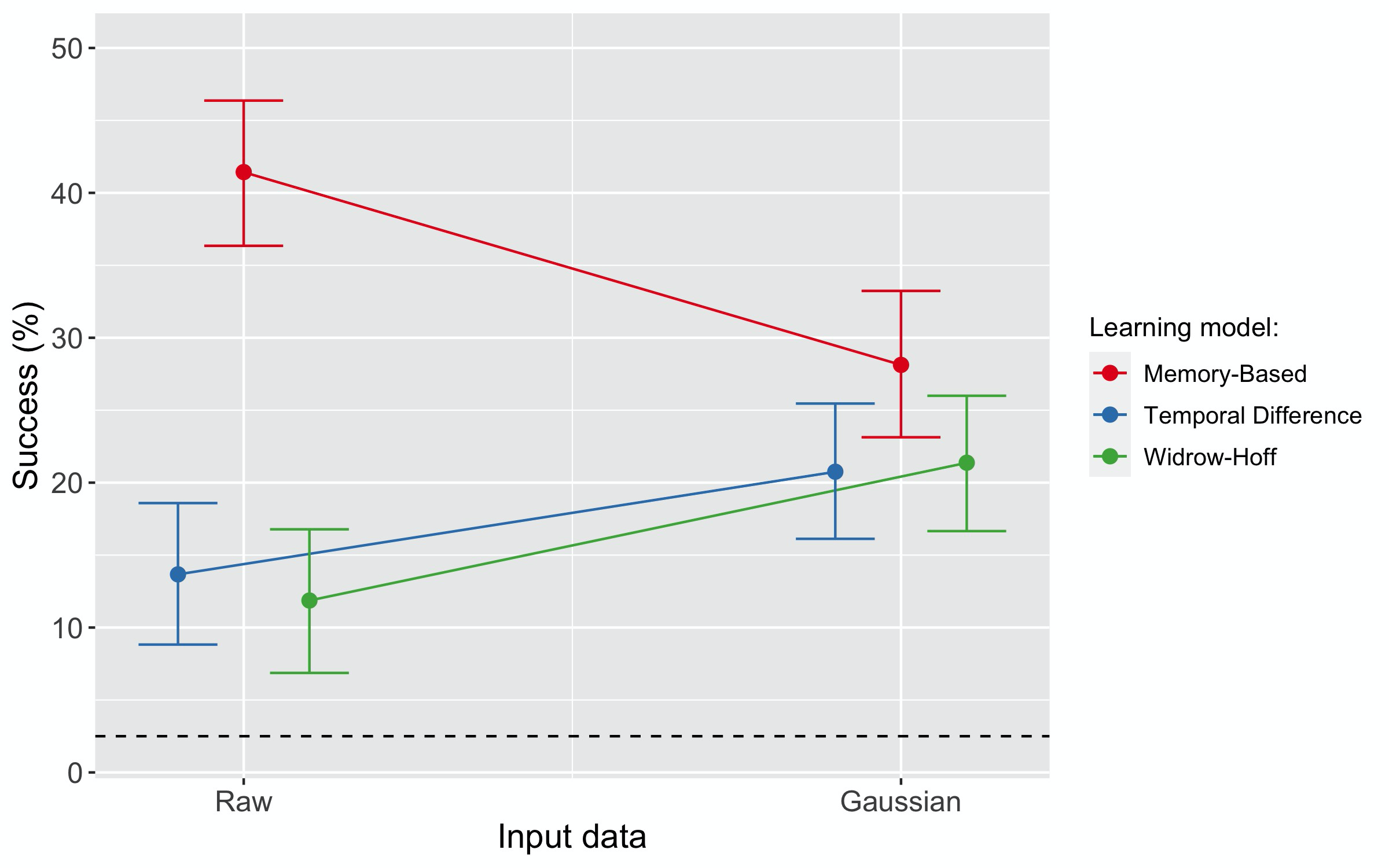In the present paper we use a range of modeling techniques to investigate whether an abstract phone could emerge from exposure to speech sounds. We test two opposing principles regarding the development of language knowledge in linguistically untrained language users: Memory-Based Learning (MBL) and Error-Correction Learning (ECL). A process of generalization underlies the abstractions linguists operate with, and we probed whether MBL and ECL could give rise to a type of language knowledge that resembles linguistic abstractions. Each model was presented with a significant amount of pre-processed speech produced by one speaker. We assessed the consistency or stability of what the models have learned and their ability to give rise to abstract categories. Both types of models fare differently with regard to these tests. We show that ECL learning models can learn abstractions and that at least part of the phone inventory can be reliably identified from the input.
翻译:在本文件中,我们使用一系列模型技术来调查在接触语音声音后是否会产生抽象电话。我们测试了语言未受过训练的语言使用者在语言知识发展方面的两个对立原则:记忆学习(MBL)和错误校正学习(ECL)。一个一般化过程是语言学家的抽象操作基础,我们调查了MBL和ECL是否会产生类似于语言抽象的语言知识。每个模型都有一位发言者制作的大量预先处理的演讲。我们评估了模型所学到的一致或稳定性及其产生抽象类别的能力。这两种模型与这些测试相比都大不相同。我们显示ECL学习模型可以学习抽象,至少部分电话清单可以从输入中可靠地识别。

